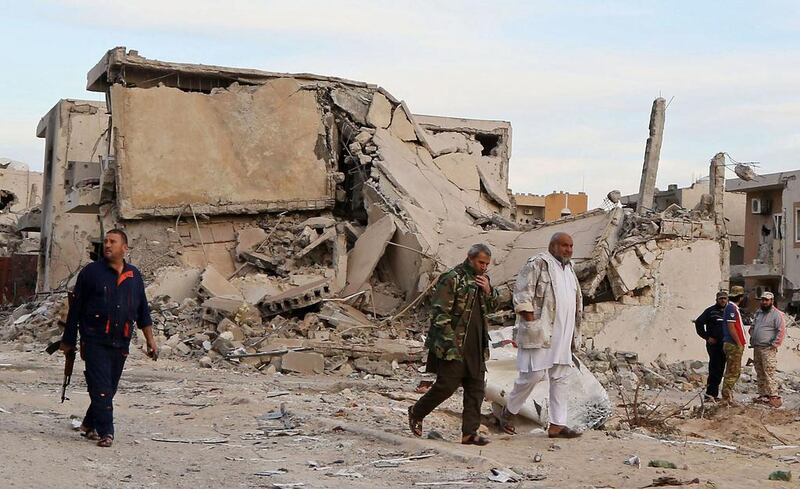After seven months of fighting, Libya’s Government of National Accord, GNA, declared victory over ISIL in Sirte, the strategically situated city on the coast close to the country’s major oil terminals. News of the liberation was greeted with hope and jubilation by many displaced residents.
But the liberation raises more questions than it answers. First, who will be in charge of the city now that it is free from ISIL? From 2012 until 2015 the city was run by a number of competing factions until the terror group took it over that summer and started imposing itsinterpretation of Islamic laws and toxic rules on residents.
Rebuilding the city is also another serious question as, indeed, is how such a gigantic project will be financed in a country on the brink of bankruptcy.
Libya’s GNA government is weak, has limited funds and lacks control over the country and the central bank, which has the final say on any large expenditure.
What impact will the liberation of one city mean for this violence ridden country?
Sirte is in an important strategic location. It sits in the middle of Libya, along the highway connecting east and west and is relatively close to the main oil terminals in nearby Ras Lanuf and Zuwetina further east. The city is at the intersection of roads that connect the south to the coastal region. However, controlling Sirte does not mean that terror groups are starved of safe places. Libya’s large parcels of difficult desert terrain are almost entirely unpatrolled by the government.
Sources from villages scattered around the desert region south-west of Sirte have told me that ISIL fighters are roaming unchallenged and have set up checkpoints.
At the height of the fighting to eject ISIL from Sirte last June, one source I spoke to was lucky to survive a confrontation at one of these checkpoints.
He was travelling with a friend to Zamzam and just before he got to an ISIL checkpoint he was alerted by another friend to avoid that part of the road. He drove around the checkpoint but found himself heading towards another roadblock with masked men on both sides of the road waving him to stop. He survived the hail of bullets fired at his car by driving at high speed, but his companion was injured and his car was damaged.
In southern Libya, a witness told me that many ISIL fighters have fled Sirte and have arrived in the south.
He said: “I saw a couple of those guys in Sabha because I knew them from before and was surprised to actually see them here.”
Terror groups, including ISIL, still operate in parts of eastern Libya, including Benghazi, where forces led by Khalifa Haftar have been battling extremism for the past two years. Derna, a midsized town north-east of Benghazi, is partly controlled by at least two groups including Al Qaeda in the Islamic Maghreb.
Politically the situation is even more chaotic in the absence of any effective control over the entire territory of Libya. The GNA has so far failed to make much progress or bring about any improvements to people’s lives. The security vacuum that exists in many parts of the country is the perfect environment for terror groups to exploit.
Liberating one city or part of Libya does not mean a victory can be claimed in the war on terror. If any lesson is to be learnt from liberating Sirte it is that unless the country is united again, with a strong army and credible security forces, it cannot defend itself against terror groups who capitalise on political and security vacuums.
Mustafa Fetouri is a Libyan academic and journalist





